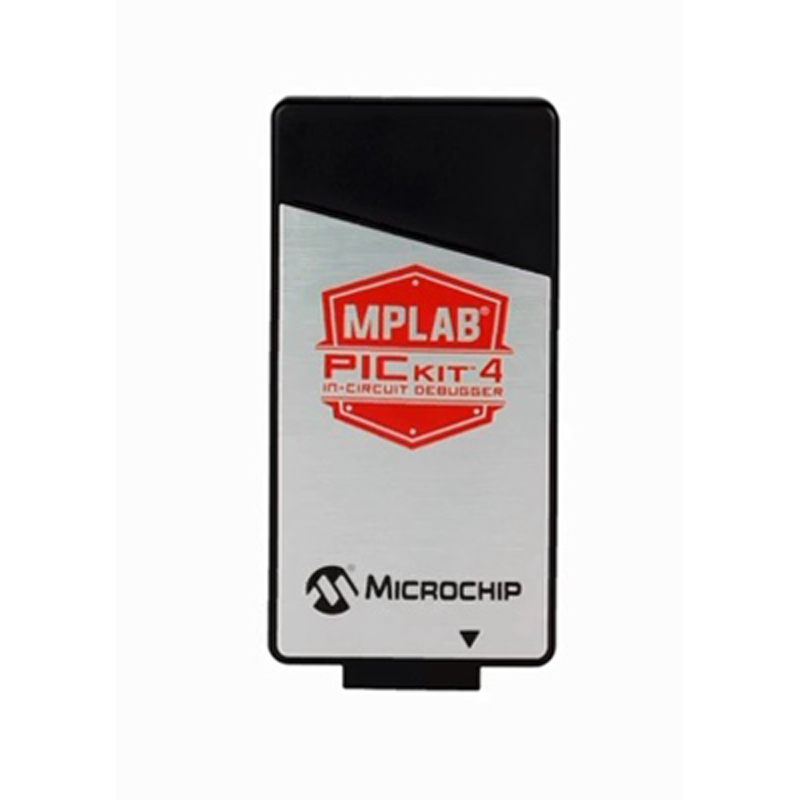
MPLAB PICkit 4
Part No.: MP-Micro-MPLAB-PICkit-4
Fast programming, increased functionality, at the same price as its predecessor, the PICkit™ 3.
產品介紹
Description
Fast programming and increased functionality at the same price as its predecessor, the PICkit™ 3.
The MPLAB® PICkit™ 4 now has Programmer-to-Go functionality for 8-bit, 16-bit and 32-bit PIC MCUs and dsPICs and also SAM MCU devices . The firmware update comes with MPLAB X IDE v5.30.
The MPLAB® PICkit™ 4 In-Circuit Debugger/Programmer allows fast and easy debugging and programming of PIC®, dsPIC®, AVR, SAM and CEC flash microcontrollers (MCUs) and microprocessors (MPUs), using the powerful graphical user interface of MPLAB X Integrated Development Environment (IDE), starting with version 4.15. The MPLAB PICkit 4 is connected to the design engineer's computer using a high-speed 2.0 USB interface and can be connected to the target via an 8-pin Single In-Line (SIL) connector. The connector uses two device I/O pins and the reset line to implement in-circuit debugging and In-Circuit Serial Programming™ (ICSP™). An additional micro SD card slot and the ability to be self-powered from the target means you can take your code with you and program on the go.
The MPLAB PICkit 4 programs faster than its predecessor with a powerful 32-bit 300 MHz SAME70 MCU and comes ready to support PIC®, AVR, SAM and dsPIC® MCU and MPU devices. Along with a wider target voltage, the PICkit 4 supports advanced interfaces such as 4-wire JTAG and Serial Wire Debug with streaming Data Gateway, while being backward compatible for demo boards, headers and target systems using 2-wire JTAG and ICSP. The PICkit 4 also has a unique programmer-to-go function with the addition of a micro SD card slot to hold project code and the ability to be powered by the target board.
Note: The PICKit 4 is compatible with MPLAB X IDE version 4.15 and later. Download Now.
To check supported devices: If you have MPLAB X IDE installed, you can browse to the “docs” folder under your MPLAB X installation directory and open the file “Device Support.htm”. Alternatively, you can download it from the Downloads tab on the MPLAB X webpage.
Package Contents
- MPLAB PICkit 4 In-Circuit Debugger/Programmer
- USB to micro-B USB cable
- Warranty card
- 2 MPLAB PICKit 4 stickers
System Requirements
- MPLAB X IDE version 4.15 or later (version 5.30 or later for programmer-to-go functionality, except for AVR devices)
- PC-compatible system with an Intel® Pentium® class or higher processor, or equivalent
- Available USB port
- Microsoft Windows® 7 or later, Mac OSX® and Linux® operating systems